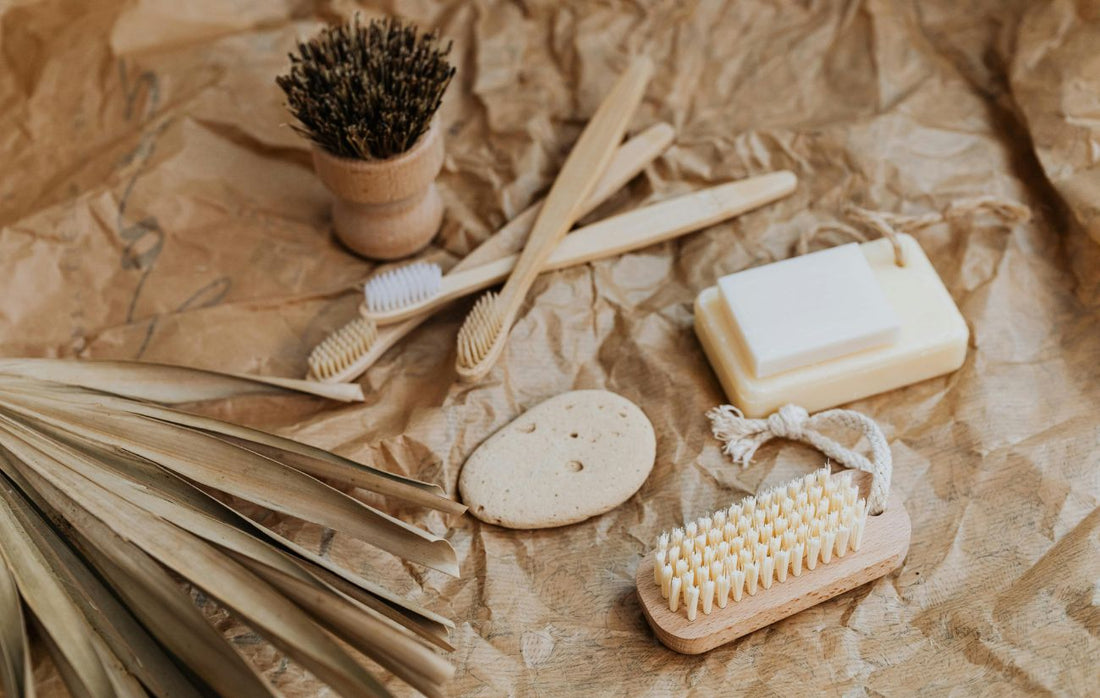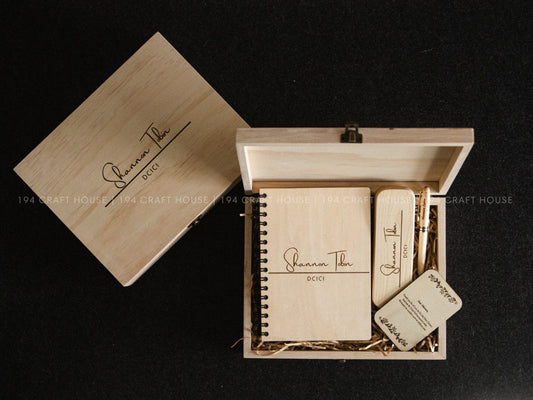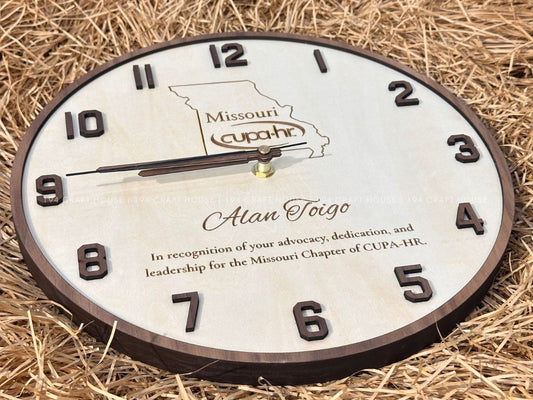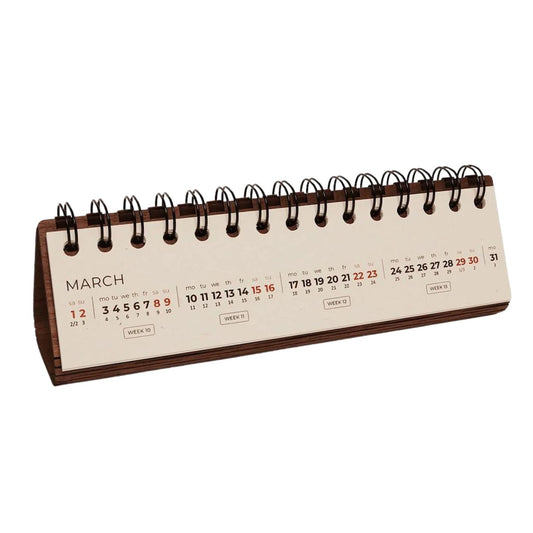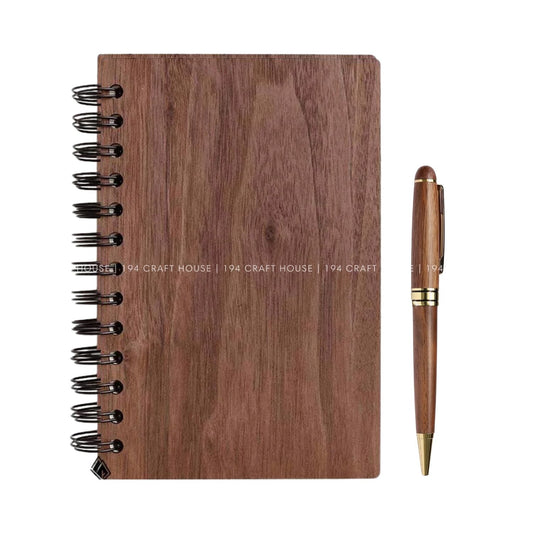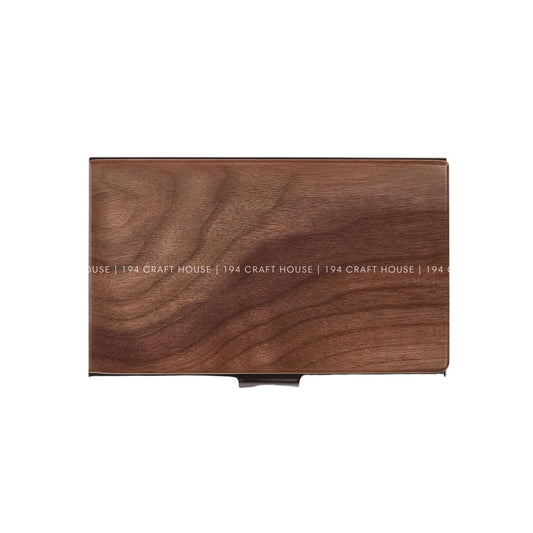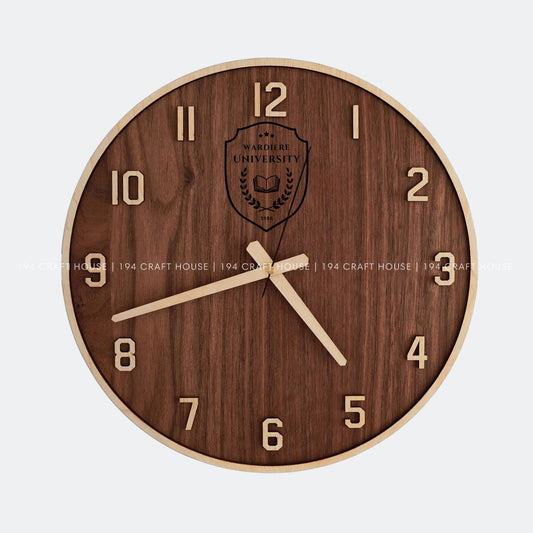Using environmentally friendly and sustainable products is extremely important to protect our planet. They help reduce pollution, conserve natural resources, and reduce the impact of climate change. They also help protect human health by reducing exposure to toxic chemicals and improving air and water quality. Ultimately, this promotes sustainable development, creates a green economy, and ensures a better future for future generations.
Understanding that, 194 Craft House products are always made from environmentally friendly and sustainable materials.
Below is information about the environmentally friendly and sustainable materials that 194 Craft House uses to make products.
1. Walnut - Elegant & Luxurious
 Walnut wood is one of the most premium woods, distinguished by its rich dark brown color and naturally beautiful grain.
Walnut wood is one of the most premium woods, distinguished by its rich dark brown color and naturally beautiful grain.
Advantages:
- Highly durable, resistant to termites.
- Exceptional aesthetics, ideal for high-end gifts.
- Recyclable, environmentally friendly.
Disadvantages:
- Expensive due to its rarity.
- Requires careful maintenance to avoid scratches.
Applications:
Used to make many office supplies such as pens, business card holders, wooden clocks, wooden boxes, and wooden-covered notebooks, and kitchen utensils such as trays & platters, spoons and forks, ...
 Check out our walnut office supplies and gift collections
Check out our walnut office supplies and gift collections
2. Maple – Sophisticated & Modern
 Maple wood is known for its light natural color and soft wood grain, giving a refined and contemporary feel.
Maple wood is known for its light natural color and soft wood grain, giving a refined and contemporary feel.
Advantages:
- Strong and durable, good impact resistance.
- Laser engraving-friendly, ideal for personalized gifts.
- Sustainably sourced, easy to grow and harvest.
Disadvantages:
- Light color may yellow over time if not properly maintained.
- Not as water-resistant as some other woods.
Applications:
Pen cases, notebooks, nameplates, and office accessories.
 Check out our Maple Office Supplies & Gift Collections
Check out our Maple Office Supplies & Gift Collections
3. Doussie – Strong & Durable
 Padauk, or Doussie wood, is a premium hardwood known for its deep reddish hue and strength.
Padauk, or Doussie wood, is a premium hardwood known for its deep reddish hue and strength.
Advantages:
- Highly durable and resistant to termites.
- Beautiful color and grain pattern.
- Long-lasting, making it ideal for heirloom gifts.
Disadvantages:
- Expensive due to its rarity.
- Requires special care to maintain its color.
Applications:
Luxury wooden pens, notebook covers, clock, calendar, executive desk accessories, commemorative plaques.
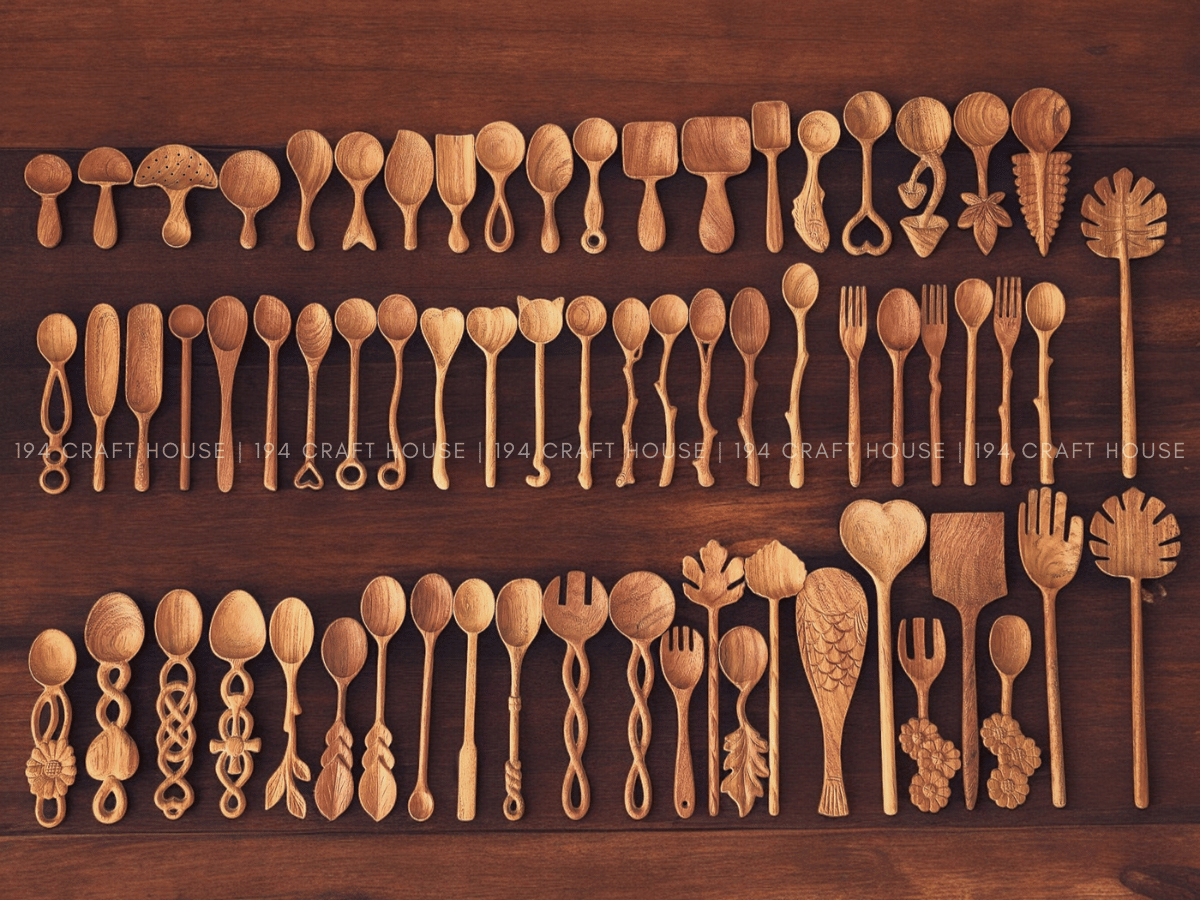 Check out our wooden spoon and fork collections handmade from Doussie wood.
Check out our wooden spoon and fork collections handmade from Doussie wood.
4. Acacia Wood – Strong & Water-Resistant
 Acacia wood is a dense and durable hardwood, highly regarded for its resistance to water and scratches, making it a perfect choice for both indoor and outdoor items.
Acacia wood is a dense and durable hardwood, highly regarded for its resistance to water and scratches, making it a perfect choice for both indoor and outdoor items.
Advantages:
- Naturally water-resistant.
- Durable and scratch-resistant, ideal for long-term use.
- Sustainably sourced, grows in diverse climates.
Disadvantages:
- Requires oiling to maintain its finish.
- Can be heavy and dense for some design applications.
Applications
Cutting boards, trays, kitchen utensils, engraved gift items.
5. Olive Wood – Distinctive & Sustainable
 Olive wood is known for its striking natural grain and is often harvested from pruned or unproductive olive trees, making it a sustainable choice.
Olive wood is known for its striking natural grain and is often harvested from pruned or unproductive olive trees, making it a sustainable choice.
Advantages:
- Rich grain and warm tone, highly decorative.
- Very dense and hard, making it durable.
- Harvested from old or pruned trees, no deforestation involved.
Disadvantages:
- Limited availability due to slow tree growth.
- Requires regular conditioning to avoid drying and cracking.
Applications:
High-end kitchenware, custom spoons, serving boards, artistic and luxury gifts.

6. Pine – Affordable & Versatile
 Pine is a softwood that is widely available and sustainable, making it an excellent choice for eco-friendly gifts.
Pine is a softwood that is widely available and sustainable, making it an excellent choice for eco-friendly gifts.
Advantages:
- Lightweight and easy to work with.
- Fast-growing and renewable, making it highly sustainable.
- Affordable compared to hardwoods.
Disadvantages:
- Softer wood, prone to dents and scratches.
- Requires proper sealing to prevent moisture damage.
Applications:
Wooden gift boxes, decorative frames, and office supplies.
 Check our Personalized Wooden Gift Box with Lock handmade form Pine wood.
Check our Personalized Wooden Gift Box with Lock handmade form Pine wood.
7. Rattan & Seagrass – Natural & Biodegradable
 Seagrass is an eco-friendly material often used in handmade products due to its flexibility and sustainability.
Seagrass is an eco-friendly material often used in handmade products due to its flexibility and sustainability.
Advantages:
- 100% biodegradable.
- Lightweight and durable.
- Naturally water-resistant.
Disadvantages:
- Susceptible to mold in humid environments.
- Requires careful weaving for durability.
Applications:
Storage baskets, placemats & coasters, decorative gift boxes, woven bags.
 Check out our rattan product collections
Check out our rattan product collections
 What is Rattan and Everything You Need To Know It?
What is Rattan and Everything You Need To Know It?
8. Linen – Breathable & Renewable
 Linen is a textile made from flax fibers, known for its durability and breathability.
Linen is a textile made from flax fibers, known for its durability and breathability.
 What is Linen and Everything You Need To Know It?
What is Linen and Everything You Need To Know It?
Advantages:
- Sustainably grown, requires less water than cotton.
- Strong and long-lasting, even after multiple washes.
- Biodegradable and compostable.
Disadvantages:
- Wrinkles easily compared to synthetic fabrics.
- Higher production cost.
Applications:
Tote bags, notebook covers, eco-friendly gift wrapping, apparel, napkins, or kitchen towels.
 Check out our linen product collections
Check out our linen product collections
9. MDF (Medium-Density Fiberboard) – Affordable & Versatile
 MDF is an engineered wood product made from compressed wood fibers and resin.
MDF is an engineered wood product made from compressed wood fibers and resin.
Advantages:
- Smooth surface, great for engraving and painting.
- Cost-effective compared to solid wood.
- Uses recycled wood fibers, reducing waste.
Disadvantages:
- Not as durable as solid wood.
- Can swell if exposed to moisture.
Applications:
Customized plaques, display stands, decorative office gifts.
10. Plywood – Strong & Sustainable
 Plywood is made by layering thin wood veneers together, creating a strong and flexible material.
Plywood is made by layering thin wood veneers together, creating a strong and flexible material.
Advantages:
- Highly durable and resistant to warping.
- Lightweight but strong.
- More sustainable than solid hardwood.
Disadvantages:
- Requires proper sealing to prevent moisture damage.
- Edge finishing may require additional work.
Applications:
Wooden gift boxes, furniture, promotional displays.
11. Bamboo – A Symbol of Sustainability
 Bamboo is one of the most eco-friendly materials due to its fast growth rate and chemical-free cultivation process.
Bamboo is one of the most eco-friendly materials due to its fast growth rate and chemical-free cultivation process.
Advantages:
- Rapidly renewable and easily replenished, does not deplete resources.
- Naturally moisture-resistant and antibacterial.
- Lightweight yet incredibly strong.
Disadvantages:
- Not impact-resistant; can crack under strong force.
- Requires surface treatment to prevent mold in humid environments.
Applications:
Bamboo cutlery sets, bamboo cups, bamboo pens, bamboo toothbrushes.
12. Coconut – Sustainable & Exotic
 Coconut wood is an eco-friendly alternative sourced from coconut palm trees that no longer produce fruit.
Coconut wood is an eco-friendly alternative sourced from coconut palm trees that no longer produce fruit.
Advantages:
- Highly sustainable, utilizing trees that would otherwise go to waste.
- Distinctive grain and texture, offering a unique aesthetic.
- Strong and durable, suitable for various applications.
Disadvantages:
- Harder to process compared to other woods.
- Limited availability in some regions.
Applications:
Kitchen utensils, furniture, decorative items, eco-friendly cutlery.
13. Stainless Steel – Durable & Recyclable
Stainless steel is a highly durable material that can be recycled multiple times without degrading in quality.
Advantages:
- Long-lasting and corrosion-resistant.
- 100% recyclable, reducing waste.
- Non-toxic and safe for food contact.
Disadvantages:
- Energy-intensive production process.
- Heavier than other materials.
Applications:
Reusable bottles, lunch boxes, cutlery sets.
14. Mother of pearl – Timeless & Luxurious
 Mother of Pearl (xà cừ) is a natural material sourced from mollusk shells, known for its iridescent beauty.
Mother of Pearl (xà cừ) is a natural material sourced from mollusk shells, known for its iridescent beauty.
Advantages:
- Elegant and luxurious, often used for premium gifts.
- Naturally strong and durable.
- Sustainably harvested from shellfish.
Disadvantages:
- Requires careful handling to avoid scratches.
- Limited supply, making it more expensive.
Applications:
Jewelry boxes, inlaid accessories, kitchen utensils and tableware, decorative corporate gifts.
15. Loofah – Organic & Compostable
 Loofah is a natural fiber derived from a plant, commonly used as an alternative to synthetic sponges.
Loofah is a natural fiber derived from a plant, commonly used as an alternative to synthetic sponges.
Advantages:
- Completely biodegradable and compostable.
- Multi-purpose use (exfoliation, cleaning, packaging padding).
- Grows quickly without pesticides.
Disadvantages:
- Becomes brittle when dry.
- Requires soaking before use to regain flexibility.
Applications:
Loofah can be used for a wide range of eco-friendly applications, including:
- Body exfoliating sponges in skincare and spa gift sets.
- Cleaning pads for household use.
- Packaging fillers for sustainable and biodegradable product presentation.
- Craft materials for handmade or zero-waste decorative gifts Exfoliating sponges, eco-friendly packaging, and natural scrubbing tools.
At 194 Craft House, sustainability isn’t just a trend—it’s our guiding principle. By carefully selecting eco-friendly and sustainable materials such as walnut, bamboo, rattan, stainless steel, linen, and more, we not only offer high-quality corporate gifts but also contribute to a greener future. Every material we choose carries a story of respect for nature and craftsmanship, helping your business express appreciation in the most thoughtful and responsible way.
Looking for gifts that make a lasting impression—and a positive impact?
Let 194 Craft House help you create meaningful, sustainable moments.

